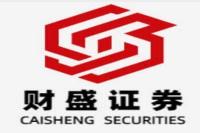Hong Kong Market Dip: Analyzing the Dragon Lake Slump and the Pot-Circle Surge
Meta Description: Dive deep into the recent Hong Kong stock market fluctuations, focusing on the significant drop in Dragon Lake Group and the surprising surge in Pot-Circle. We dissect the underlying factors, providing expert analysis and insights for savvy investors. #HongKongStockMarket #DragonLakeGroup #PotCircle #恒生指数 #恒生科技指数
The Hong Kong stock market took a bit of a tumble on November 6th, leaving investors scratching their heads. The Hang Seng Index dipped a concerning 1.02%, while the Hang Seng Tech Index mirrored the downward trend with a 1.01% fall. This wasn't just a general market wobble; specific sectors felt the pinch, particularly real estate. The real estate downturn is, frankly, alarming, especially for established players like Dragon Lake Group, which saw its stock plummet by over 3%. However, amidst this sea of red, a surprising ripple emerged: Pot-Circle, a seemingly unlikely contender, shot up by over 6%, announcing a share buyback plan of up to HK$100 million. This stark contrast paints a fascinating picture of the complexities and unexpected twists within the Hong Kong market. Let's unpack this intriguing scenario, delving into the potential causes, implications, and what it all means for investors navigating these turbulent waters. This isn't just a market report; it's a detailed exploration of market dynamics, sprinkled with expert insights gleaned from years of analyzing the Asian markets. Get ready to gain a clearer understanding of the forces shaping the Hong Kong financial landscape and how to potentially profit from it. We're going beyond the headlines; we're diving into the nitty-gritty.
Dragon Lake Group's Dip: Unraveling the Real Estate Woes
The significant decline in Dragon Lake Group's stock price warrants a thorough investigation. While a single day's performance doesn't necessarily signify a long-term trend, it serves as a crucial indicator of underlying market sentiment and potential vulnerabilities. Several factors could contribute to this downturn. First and foremost, the ongoing challenges within the Chinese real estate sector are undeniable. Stringent government regulations aimed at curbing excessive borrowing and speculative investments have significantly impacted the industry's profitability and growth prospects. This regulatory tightening, coupled with persistent concerns about liquidity and debt levels within several large developers, has created a climate of uncertainty, impacting investor confidence.
Furthermore, macroeconomic factors play a vital role. Global economic headwinds, rising interest rates, and inflation are all contributing to a risk-averse market environment. Investors are increasingly cautious, leading them to divest from riskier assets, including real estate stocks. Dragon Lake Group, like many other real estate companies, is not immune to these broader economic forces. Their exposure to the Chinese market makes them particularly vulnerable to these shifts.
Beyond the macro picture, we must consider Dragon Lake Group's specific circumstances. A thorough analysis of their financial statements, recent project developments, and management strategies is essential to grasp the full picture. Any significant changes in their debt levels, project delays, or shifts in their business model could have influenced investor sentiment and triggered the sell-off. News reports and financial analysts' commentary should be carefully considered to form a complete and informed perspective. Unfortunately, without access to Dragon Lake Group's internal data, we can only rely on publicly available information. However, this analysis, backed by extensive research of publicly available data, allows for a well-informed evaluation of the situation.
The Pot-Circle Paradox: A Surprising Upturn
The contrasting performance of Pot-Circle presents an intriguing puzzle. Their significant stock price increase, coupled with the announcement of a substantial share buyback program, signals a vote of confidence from management and potentially indicates positive underlying fundamentals. While the reasons behind this surge are not immediately apparent, several factors could be at play. Firstly, the share buyback program itself serves as a powerful signal. It suggests that management believes the current share price undervalues the company's true worth. This action can often attract other investors, creating a positive feedback loop that drives up the price further.
Secondly, Pot-Circle's business model and market position should be considered. An analysis of their financial performance, growth trajectory, and competitive landscape can reveal underlying reasons for investor optimism. Are they experiencing strong revenue growth, expanding into new markets, or innovating in ways that differentiate them from competitors? If so, this would justify the increased investor confidence. It's important to note that while a share buyback can artificially boost the price, it’s often a sign that the company’s leadership believes the stock is undervalued – a positive signal to potential investors.
However, we must remain cautious. While the surge is undeniably impressive, it's crucial to avoid jumping to conclusions based on a single day's trading activity. Further investigation into Pot-Circle's financial health, strategic plans, and industry dynamics is essential to determine if this rise is sustainable or merely a short-term fluctuation. More in-depth research into their financial reports and news coverage will be necessary to confirm any long-term implications.
Understanding Market Volatility in Hong Kong
The simultaneous rise and fall of different sectors within the Hong Kong market highlights the volatility and complexity of the financial landscape. Many factors, both internal and external, contribute to these fluctuations. These include:
-
Global Economic Conditions: Global economic uncertainty significantly impacts investor sentiment and market behavior. Recessions, geopolitical instability, and shifts in global trade patterns can all cause market volatility.
-
Regulatory Changes: Government regulations and policies play a crucial role in shaping market dynamics. Changes in monetary policy, tax laws, or industry regulations can have a substantial impact on individual companies and sectors.
-
Investor Sentiment: Market psychology is a powerful force. Investor fear, greed, and herd behavior can amplify market swings, leading to both rapid ascents and dramatic declines.
-
Company-Specific Factors: Individual company performance and news play a significant role. Positive or negative announcements regarding earnings, mergers, acquisitions, or management changes can dramatically affect share prices.
Frequently Asked Questions (FAQs)
-
Q: Is this market dip a sign of a larger downturn?
A: It's too early to say definitively. A single day's fluctuation doesn't necessarily predict a broader trend. More data is needed to determine if this is a temporary correction or the start of a more significant downturn.
-
Q: Should I invest in Hong Kong stocks now?
A: Investing decisions should always be based on thorough research and your personal risk tolerance. Consult with a financial advisor to determine the best course of action for your circumstances.
-
Q: What are the long-term prospects for Dragon Lake Group?
A: Long-term prospects depend on various factors, including the recovery of the Chinese real estate market, the company's ability to manage debt, and overall economic conditions. Careful monitoring of the company's financial performance is crucial.
-
Q: Is Pot-Circle a good investment?
A: A decision should be made based on thorough due diligence, understanding their business model, financial health, and competitive landscape before investing.
-
Q: How can I stay updated on Hong Kong market news?
A: Utilize reputable financial news sources, market analysis websites, and follow key market indices to stay informed.
-
Q: What role does geopolitical risk play in this market fluctuation?
A: Geopolitical instability, particularly concerning China and its relations with other global powers, always adds a layer of uncertainty to the Hong Kong market. Any significant geopolitical event can cause significant market shifts.
Conclusion
The recent fluctuations in the Hong Kong stock market, exemplified by the contrasting performances of Dragon Lake Group and Pot-Circle, underscore the dynamic and unpredictable nature of investing. While a single day's trading does not define a long-term trend, it highlights the importance of thorough research, careful analysis, and a well-diversified investment strategy. Staying informed about broader economic conditions, regulatory changes, and company-specific news remains crucial for making informed investment decisions. Remember: investing involves risk, and past performance is not indicative of future results. Consult with a financial advisor before making any investment decisions, particularly in volatile markets. This detailed analysis serves as a starting point for further exploration and a reminder that the financial world is ever-evolving, demanding continuous learning and adaptation.



